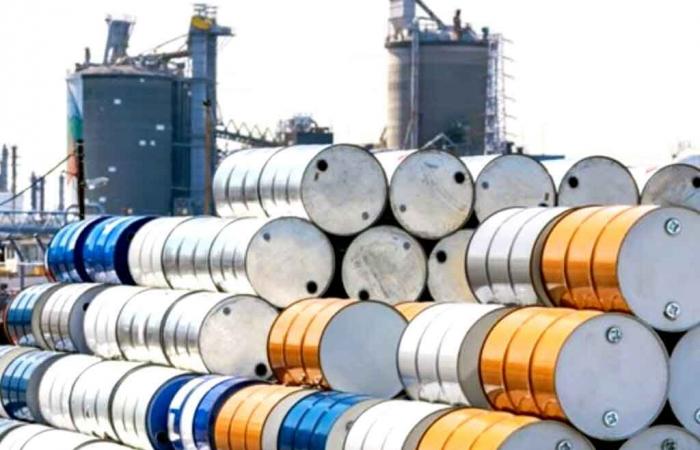Over the past year, the conflict in the Middle East has led to high volatility in oil prices, partly due to fears of damage to the oil and gas infrastructure of major producers if the conflict were to intensify.
Global commodity prices in 2025 are expected to fall to a five-year low, amid an oil glut so large it will likely limit the price effects of a broader conflict in the Middle East. Nevertheless, overall commodity prices will remain 30% higher than in the five years preceding the COVID-19 pandemic,” according to the latest Commodity Markets Outlook report from the World Bank (WB).
Next year, according to a WB press release on October 29, “global oil supply is expected to exceed demand by 1.2 million barrels per day on average, a figure that has only been exceeded twice previously, during the containment measures linked to the 2020 pandemic and the collapse of prices in 1998.” Explanation: the excess supply in question is due, in part, to the fact that in China, oil demand has virtually stagnated since 2023 “due to a slowdown in industrial production and an increase in sales of electric vehicles and trucks powered by liquefied natural gas.
In addition, several non-OPEC+ countries are expected to “increase” their production. “OPEC+ itself maintains significant reserves – 7 million barrels per day –, almost double the level observed in 2019, on the eve of the pandemic,” noted the WB. This states that between 2024 and 2026, world prices of basic products should fall by almost 10%.
“Food prices, she said, are expected to fall by 9% this year and by a further 4% in 2025 before stabilizing, but they will remain almost 25% higher than their average level over the 2015 period. -2019.” Regarding energy prices, forecasts indicate “a decline of 6% in 2025 then another 2% the following year”. And then to point out that if this double reduction should allow Central Banks to “control inflation more easily”, an escalation of armed conflicts risks “compromising this effort”.
Brent price expected to fall to $73
Over the past year, the conflict in the Middle East has led to high volatility in oil prices, partly due to fears of damage to the oil and gas infrastructure of major producers if the conflict were to intensify. Assuming this does not happen, the annual average Brent price is expected to fall to $73 a barrel in 2025, a four-year low, from $80 a barrel this year.
The report anticipates a possible reduction in global oil supply of 2%, or 2 million barrels per day, if the conflict escalates by the end of the year. He fears disruptions on a scale “comparable to those caused by the civil war in Libya in 2011 and the war in Iraq in 2003”. If a similar situation were to recur, notes the WB, Brent prices would initially increase sharply, reaching a peak of $92 per barrel.
On the other hand, oil producers who are not affected by the conflict could quickly react to such a rise in prices by increasing their production. Consequently, the price surge could be “relatively brief”, and the price of oil would settle “on average at 84 dollars per barrel in 2025”.
Eight OPEC+ members extend production cuts
Several members of OPEC+, including Saudi Arabia and Russia, announced yesterday an extension of their oil production cuts until the end of December, thus postponing the reopening of the floodgates in the face of falling prices. The eight countries “agreed to extend their additional voluntary production reductions of 2.2 million barrels per day for another month,” the Alliance said in a statement.
First deliveries of natural gas to the Czech Republic
The Sonatrach group has started delivering the first quantities of natural gas to the Czech Republic through the gas pipeline linking Algeria to Italy, it announced yesterday in a press release. “Sonatrach began, on October 1, 2024, the delivery of the first quantities of natural gas to the Czech company CEZ, as part of a contract for the purchase and sale of natural gas recently concluded by the two companies,” said the same source. This gas, intended for supply to the Czech Republic, is transported through the gas pipeline linking Algeria to Italy, the press release said.
This delivery comes after “the conclusion of successful negotiations which lasted two years” between the two parties and constitutes “the first milestone of cooperation between the two companies, with a view to consolidating their longer-term relationship”, also underlined the national company . This first contract will allow Sonatrach to “conquer a share of the Czech gas market and also strengthen its role as a reliable long-term supplier of natural gas to the European market,” the same source said.






